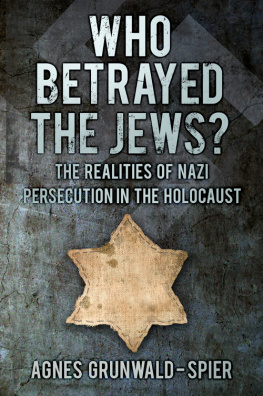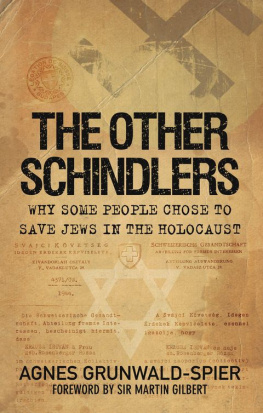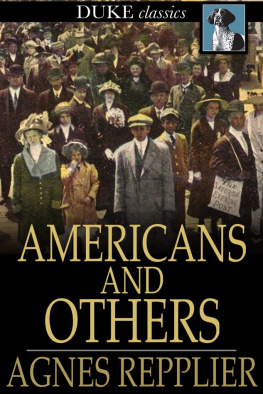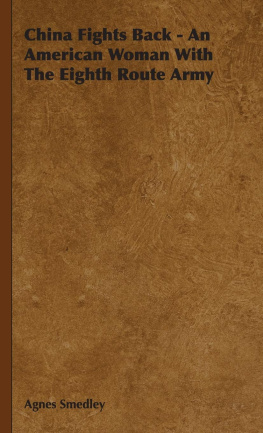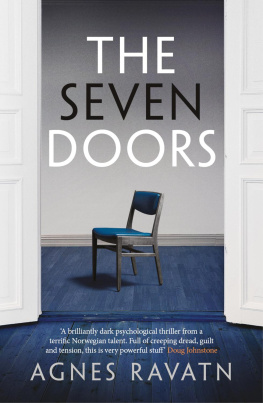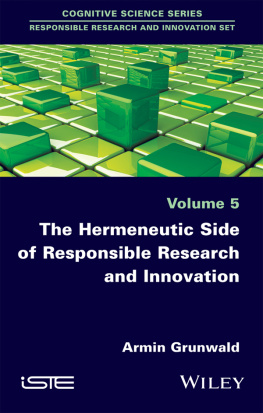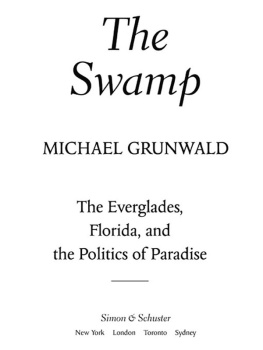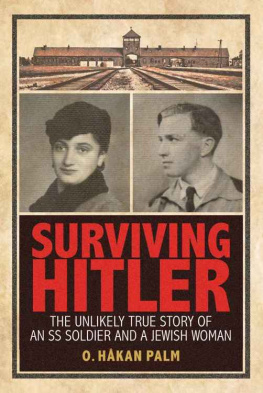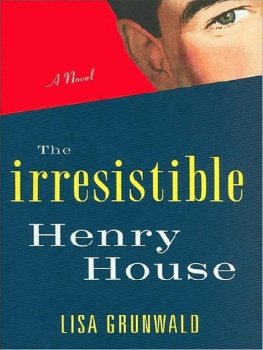Agnes Grunwald-Spier - Who Betrayed the Jews?
Here you can read online Agnes Grunwald-Spier - Who Betrayed the Jews? full text of the book (entire story) in english for free. Download pdf and epub, get meaning, cover and reviews about this ebook. year: 2016, publisher: The History Press, genre: Religion. Description of the work, (preface) as well as reviews are available. Best literature library LitArk.com created for fans of good reading and offers a wide selection of genres:
Romance novel
Science fiction
Adventure
Detective
Science
History
Home and family
Prose
Art
Politics
Computer
Non-fiction
Religion
Business
Children
Humor
Choose a favorite category and find really read worthwhile books. Enjoy immersion in the world of imagination, feel the emotions of the characters or learn something new for yourself, make an fascinating discovery.
- Book:Who Betrayed the Jews?
- Author:
- Publisher:The History Press
- Genre:
- Year:2016
- Rating:4 / 5
- Favourites:Add to favourites
- Your mark:
- 80
- 1
- 2
- 3
- 4
- 5
Who Betrayed the Jews?: summary, description and annotation
We offer to read an annotation, description, summary or preface (depends on what the author of the book "Who Betrayed the Jews?" wrote himself). If you haven't found the necessary information about the book — write in the comments, we will try to find it.
Who Betrayed the Jews? — read online for free the complete book (whole text) full work
Below is the text of the book, divided by pages. System saving the place of the last page read, allows you to conveniently read the book "Who Betrayed the Jews?" online for free, without having to search again every time where you left off. Put a bookmark, and you can go to the page where you finished reading at any time.
Font size:
Interval:
Bookmark:


For my beloved sons Daniel, Benjamin and Simon
The Somme is like the Holocaust. It revealed things about mankind that we cannot come to terms with and cannot forget. It can never become the past.
Pat Barker, November 1995, on winning the Booker Prize
Tell your children of it, and let your children tell their children, and their children another generation.
Joel 1:3
Inevitably a book like this requires the assistance of many people. I have acknowledged many different individuals assistance in the text and the footnotes the people who gave me their stories, the academics and experts who patiently answered my questions and the institutions who sent me their documents and publications free of charge.
I would also like to thank the staff of the Wiener Library and the British Library in London. They were always very helpful. However, at the time I had my hip-replacement operation they were both especially accommodating in reserving books and desks and carrying piles of books for me. It was much appreciated.
I would particularly like to thank Hildegard Abraham for her endless help with German translation and her enthusiastic support for my work. Without her, the book would have taken even longer and I would never have heard Annelores remarkable story about being a Mischling. I would also like to thank my mentor Emeritus professor Aubrey Newman for the insightful foreword and reading the draft when I was wrestling with my editor Mark Beynon over the length of the book. Mark was always most encouraging and eventually gave in and agreed to publish the whole book intact, which Juanita Zo Hall edited with great patience and understanding. Sir Martin Gilbert, who wrote the foreword to my first book, died in February 2015; I am grateful for his kind support over several years.
Inevitably, my dear parents, Leona and Philipp Grunwald, and my grandfather, Armin Klein, were often in my mind as I worked and I hope they would have been proud.
Finally, I would like to thank my three precious sons for their support, as ever. Other 71-year-old mothers play bridge or golf and have their nails done. I pestered Daniel for help with the sportspeople and Olympians and Benjamin for help with the international law. Simon helped with the glossary and abbreviations. As with the build-up to publication of my first book, my daughter-in-law Michelle was expecting a baby and this time a sister for Jamie was born, named Sophie Leona Anne. Unfortunately the members of my family have been neglected as a result of my labours, but I hope they will regard it as having been worthwhile.
In spite of all this help and support, the books faults and imperfections are mine alone.
Agnes Grunwald-Spier
2016
There is a saying in the Talmud that the saving of a single life is the equivalent of saving the entire world. It might well be said that the converse is also true, that the betrayal to death of a single person is equal to the death of an entire world. It might seem inconceivable, but the story of the destruction of the Jews of Europe is as much the story of a large number of such individual betrayals as of the mass murder of entire communities. This is the story of such betrayals.
In her earlier work Agnes Grunwald-Spier publicised a number of men and women whose actions, echoing those of the better-known Oscar Schindler, saved a number of Jews, seeking neither rewards nor recognition but merely doing what they felt to be right. Grunwald-Spier showed how there were many as deserving of praise as those who did what they felt was right out of high moral purpose, out of their own humanity. But in the progress of this study she uncovered another side of the Holocaust, which, as she says, shocked her. This was the realisation that there were groups and individuals who acted in the directly opposite manner, who in one way or another betrayed the trust of others who might well have escaped the fate of their fellow Jews.
Betrayal can take many forms; some people were entrusted with the cherished belongings of Jews who hoped that they might be able to return to claim them; later they denied that they had ever received them. To some extent such greed is explicable and falls into the same category as the conduct of those who would not themselves take action against their Jewish neighbours, but were fully prepared to take advantage of the opportunities that the removal of those neighbours offered them. Those who employed concentration camp labour knowing the conditions under which these slaves were working are equally culpable. The railway companies who profited from transporting Jews from the further points of Europe to the gas chambers of Auschwitz cannot complain if attention is drawn to their behaviour. And there are still art galleries housing objets dart, the provenance of which is still far from clear.
What however many would agree as shocking and almost unbelievable is the conduct of those who knowingly handed over information about individuals who had gone into hiding, those who not merely profited casually but who actively sought to profit. Everywhere there were rewards for those who disclosed the whereabouts of those sought by the Gestapo. It is easy to forget that, for example, the hiding place of the Frank family was not found by the Gestapo but had been revealed to them.
The story that Grunwald-Spier tells is of a wide range of such circumstances, stretching from the employee at Auschwitz whose duties were limited to checking the cash and valuables of the inmates to the girls walking the streets of Rome and pointing out those Jews who might otherwise have escaped detection. What she has found during the course of her research might well be considered even more shocking that those girls betraying their clients were Jewish girls. Sometimes such actions were for a financial reward; more often it was out of fear and desperation, the hope that they might at least save themselves.
These are betrayals by individuals, but they are what might be considered as collective betrayals. Most would consider the actions by doctors in the camps as a clear betrayal of the Hippocratic oaths that they had taken on qualification.
The account of The Other Schindlers was one of praise, and Agnes Grunwald-Spier was right to tell us of it. But this account has also to be told. It is a story which must make us all pause, for it involves even those who might well consider themselves as bystanders. No one can be sure what they might do under such circumstances; no one can know that they would be able to resist the ultimate temptation. What Grunwald-Spier teaches us is that we can never stand aloof.
Professor Aubrey Newman
AJR | Association of Jewish Refugees. |
Bar Mitzvah | Ceremony of coming of age for a boy aged 13. Afterwards he is regarded as an adult and can be part of a minyan see below. |
Barneveld List | Barneveld was the site of a camp where about 700 prominent Dutch Jews were interned. Most of these Jews survived the war and were referred to as the Barneveld Group. This group was created when K. L. Frederiks, then the permanent secretary of the Dutch Ministry of Home Affairs, compiled a list of deserving Dutch Jews. Artists, doctors and industrialists found a much-coveted place on Frederiks list, but hundreds were refused. |
Bat Mitzvah |
Font size:
Interval:
Bookmark:
Similar books «Who Betrayed the Jews?»
Look at similar books to Who Betrayed the Jews?. We have selected literature similar in name and meaning in the hope of providing readers with more options to find new, interesting, not yet read works.
Discussion, reviews of the book Who Betrayed the Jews? and just readers' own opinions. Leave your comments, write what you think about the work, its meaning or the main characters. Specify what exactly you liked and what you didn't like, and why you think so.

